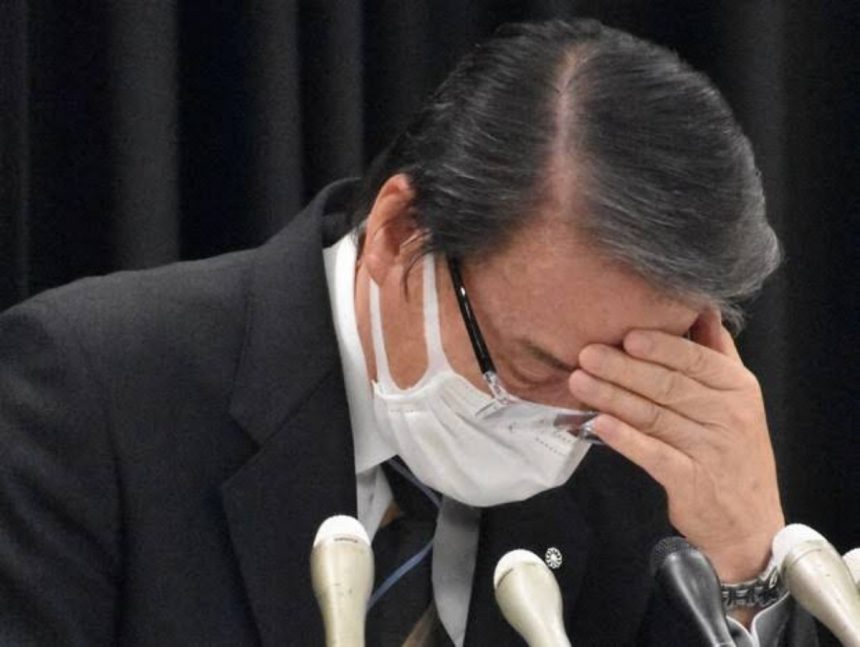Social media users were outraged on Friday by the resignation of a Japanese mayor who faced 99 sexual harassment claims and cried at a press conference while denying some of them.
Hideo Kojima, the mayor of a town in central Gifu region, was accused by an official investigation of harassing several colleagues, including groping their breasts and buttocks.
The 74-year-old announced on Thursday that he would step down, a day after he shed tears in front of reporters as he recounted how his brother had rebuked him.
He rejected some of the allegations in a report by an independent committee, such as hugging female employees in front of witnesses.
“I didn’t do it,” he said on TV, claiming that his actions may have seemed like a hug, but were not.
“The report is biased and I want them to look into it more thoroughly,” the mayor said.
NHK, a broadcaster, reported that Kojima had not read the entire report, which claimed that he would ask subordinates to touch his “fair and smooth” hands.
The report also said that he would roll up his pants to “show off his legs” and tell them to touch.
The report mentioned that some workers used disinfectant spray after being touched, and that he made inappropriate comments and requests, such as telling an employee to bend over.
Kojima, who will leave his office on Tuesday, has not been charged with any crime.
The investigation was triggered by reports in the weekly Shukan Bunshun magazine, which said that the mayor frequently patted women workers on their heads.
Kojima said this was meant to “show appreciation”.
The news was trending on social media platform X on Friday, and many users were angry.
“He has no right to cry. It’s the employees who should cry,” one commented.
“If you think patting someone on their head is just a way of communicating, then do it to older men,” another said.
The committee also conducted a survey among 193 workers in Kojima’s municipality.
Of the 161 who answered, about 53 percent of men and 58 percent of women said the mayor had done something that made them feel uneasy.
The global #MeToo movement has been slow to gain momentum in Japan, where many victims are said to be too afraid to speak up, but a few high-profile cases have recently prompted a change.





